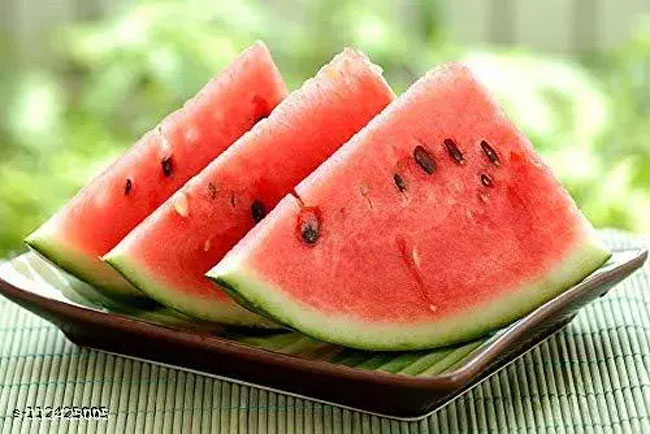When it comes to fruits that rule the summer season, watermelon tops the list. With its juicy red flesh and cooling green exterior, watermelon isn’t just a treat for the taste buds but also a powerhouse of health benefits. Rich in water and essential nutrients, it helps the body stay cool and hydrated during scorching summers. Let’s explore the many benefits of including watermelon in your summer diet.
Keeps the Body Hydrated
Watermelon contains about 92% water, making it an excellent fruit to prevent dehydration. It quenches thirst effectively and replenishes the body’s lost electrolytes.
Soothes the Digestive System
Common summer issues like acidity, bloating, and indigestion can be eased by consuming watermelon. It cools down the digestive tract and promotes better digestion.
Enhances Skin Health
Packed with vitamins A, C, and antioxidants, watermelon nourishes the skin, keeping it fresh and hydrated. Regular intake gives the skin a natural glow and helps fight sun damage.
Aids in Weight Loss
Low in calories and high in water content, watermelon keeps you feeling full for longer without adding excess calories. It’s a great snacking option for those looking to lose or maintain weight.
Supports Heart Health
Watermelon is rich in lycopene, a powerful antioxidant that helps reduce bad cholesterol, supports healthy blood pressure levels, and promotes a healthy heart.
Relieves Fatigue and Heat Stress
The natural sugars and electrolytes in watermelon provide instant energy and help the body recover from heat exhaustion or fatigue, keeping you refreshed.
Good for Kidney Health
Watermelon acts as a natural detoxifier. It helps flush out toxins from the body through urine and supports kidney function, reducing the risk of kidney stones.
Beneficial for Eye Health
The presence of vitamin A and beta-carotene in watermelon supports healthy vision and helps protect the eyes from age-related degeneration.
How to Eat Watermelon
- Eat it chilled, but avoid consuming it straight out of the fridge.
- Enjoy it as slices, smoothies, salads, or juice.
- Avoid eating it immediately after meals; it’s best consumed an hour before or after eating.
Precautions
- Overeating may cause bloating or gastric discomfort.
- People with diabetes should consume it in moderation due to its natural sugar content.
Conclusion:
Watermelon is not just a tasty summer fruit—it’s a health booster packed with hydration, nutrients, and cooling effects. Including watermelon in your daily diet can help you beat the heat and stay energized and refreshed all summer long.




